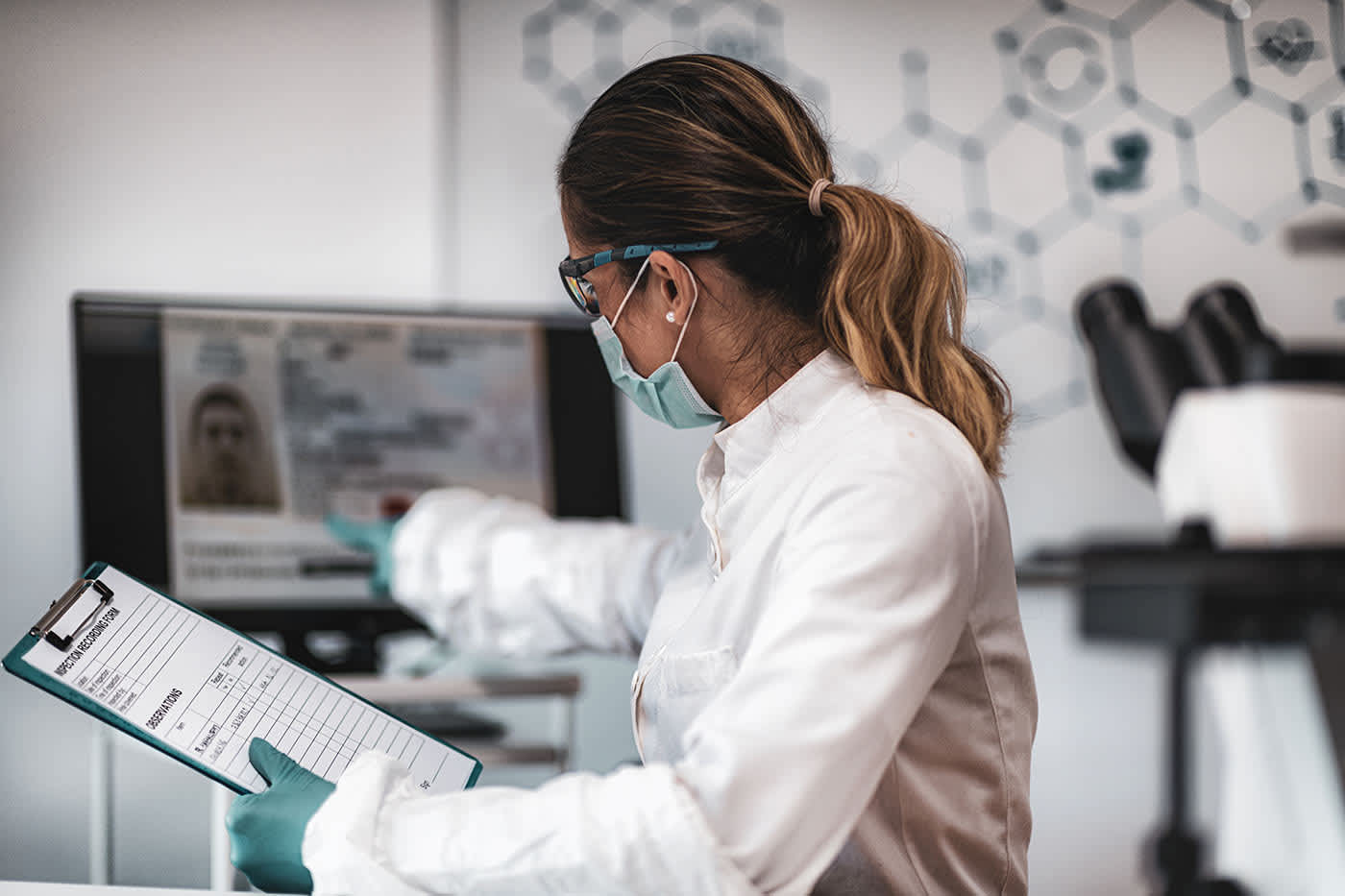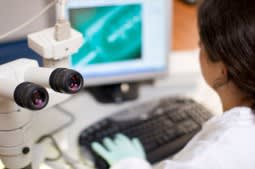
Crime Lab Analyst Career Guide
Are you ready to find a school that's aligned with your interests?
Crime lab analysts collect, identify, classify, and process evidence collected from crime scenes. They use this evidence to help investigators identify the methods used to commit crimes, the types of materials present, and possible suspects.
Featured Online Programs
Explore program formats, transfer requirements, financial aid packages, and more by contacting the schools below.
Career Description, Duties, and Common Tasks

Crime lab analysts process physical evidence submitted by investigators to help identify what is and what is not significant to the investigation. Analysts solve the crime scene puzzle based on the pieces presented. They examine evidence and prepare reports for grand juries and court presentations and may testify in court as expert witnesses. Many crime lab analysts specialize in specific areas of evidence identification such as ballistics, fingerprinting, handwriting, blood splatter analysis, and tire impressions. Crime lab analysts work in the public and the private sectors. Most work in the public sector is found with local, state, and federal law enforcement agencies. Lab analysts should be prepared to continue their education to keep up with the latest forensic science advances. Individuals who gain experience as a crime lab analyst or who earn an advanced degree may have opportunities for advancement to such positions as crime lab director or supervisor.
Steps for Becoming a Crime Lab Analyst
The minimum educational qualification to become a crime laboratory analyst is a high school diploma or equivalent, though a bachelor's degree in forensic science, criminology, criminal justice, or physical sciences may be preferred or even required for some positions. Some state and federal crime labs even require a master's degree or a doctorate. While each job's hiring process will be distinct, the following steps are an example of what to expect:
- Attend a degree program or gain experience in a related field.*
- Apply for an open position as a crime lab analyst.
- Complete a physical examination, drug test, polygraph exam, and background investigation.
- Get hired as a crime lab analyst.
- Receive on-the-job training once hired.
*Check with the job posting for specific requirements.
Crime Lab Analyst Job Training
Many employers require crime lab analysts to have some related experience. Prospective analysts who are pursuing a degree can gain hands-on experience by completing an internship during their undergraduate and/or graduate studies. Crime laboratory analysts are frequently required to complete additional on-the-job training specific to procedures used by the hiring organization.
Other Helpful Skills and Experience
Successful analysts must be detail-oriented and have the ability to think analytically. Due to the necessity of presenting findings in written form, crime laboratory analysts must be able to communicate effectively both orally and in writing. Prospective analysts with previous experience in science and with laboratory equipment may have a competitive edge. Former law enforcement and military members may find that experience advantageous during the hiring process.
Possible Job Titles for This Career
- Crime Laboratory Analyst
- Forensic Lab Analyst
- Forensic Science Technician
Crime Lab Analyst Salary and Job Outlook
The Bureau of Labor Statistics (BLS) does not provide salary data for crime laboratory analysts but does report a median salary of $58,230 per year for the related occupation of forensic science technicians.1 Salaries for these positions vary depending on agency, geographic location, education, and area of expertise. Crime lab analysts with strong computer skills and lab experience are expected to have greater success in finding employment. Overall, the BLS has projected a job growth rate of 17% between 2016 and 2026 for forensic science technicians, much faster than the average for all occupations.1
Related Careers
Interested in a career similar to a crime lab analyst? Check out these related careers:
- Blood Spatter Analyst
- Computer Forensics Investigator
- Forensic Accountant
- Forensic Anthropologist
- Forensic Ballistics Expert
- Forensic Nursing
- Forensic Psychologist
- Forensic Science Technician
- Crime Scene Investigator
Frequently Asked Questions
What is a common work schedule for a crime laboratory analyst?
What kind of personality is best suited for a crime scene analyst?
What can I expect from the background investigation?
Additional Resources
- American Society of Crime Lab Directors/Laboratory Accreditation Board: This organization provides accreditation and training for crime laboratories.
- Consortium of Forensic Science Organizations: An association of professional forensic science organizations dedicated to forensic scientists.
- Marshall University: A forensic science career guide.
References:
1. Bureau of Labor Statistics Occupational Outlook Handbook, Forensic Science Technicians: https://www.bls.gov/ooh/life-physical-and-social-science/forensic-science-technicians.htm
Latest Posts
Take the next step toward your future.
Discover programs you’re interested in and take charge of your education.